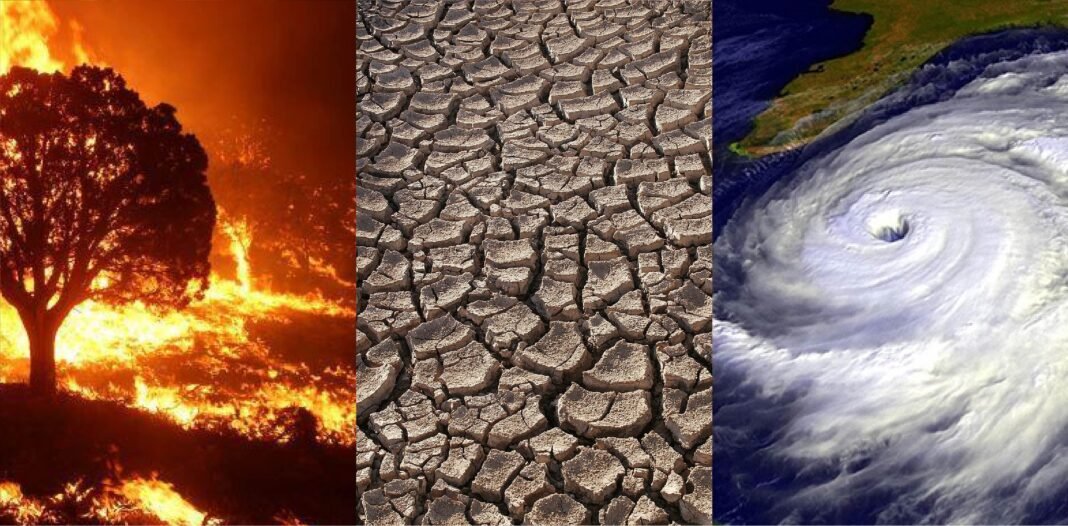United Nations Secretary-General António Guterres has warned that our planet has entered a new era of global boiling. This is supported by recent findings from the Climate Change Institute (CCI), which show that the average global air temperature has increased by 0.89ºC (1.60ºF) since 1979. NASA has also confirmed this, declaring July 2023 as the hottest month ever recorded since 1880.
It is a major threat to the survival of our species and the planet. Greenhouse gas emissions have increased by 50%. As a result, Economic losses are recorded in billions of dollars, and more than 3.6 billion people around the globe are affected.
The Conference of the Parties (CoP) initiated discussions that proposed a division between developed and developing nations. In 1997, the Kyoto Protocol introduced carbon quotas, with 37 countries exceeding their quotas and 160 emitting less carbon than allowed.
The Global North, led by the United States, argues that climate change is a global problem since the Earth’s environment is a shared resource polluted by carbon emissions from both developed and developing countries. Major contributors include the US (25%), the European Union (22%), Canada (4%), China (35%), and India (9%). Consequently, they advocate for collective global responsibility in reducing carbon emissions.
The Global South, led by China and India, has argued that the responsibility for addressing climate change should be shared by all countries. However, the United Nations Climate Change Conferences (UNCCC) have found that developed countries are responsible for more than 79% carbon emissions. This is because developed countries industrialized first and used fossil fuels to power their economies.
COP21 witnessed a historic agreement where major carbon-emitting countries committed to carbon reduction plans. The Global North pledged a 55% reduction, while the Global South committed to a 35% reduction within 15 years, aiming to limit global temperature rise to 1.5°C by 2030.
COP21 also secured $100 billion in financial aid for the most affected countries, with the US contributing 28% and other major emitters making up the rest. President Obama declared climate change a national security threat, leading the US to reject new coal projects and invest in clean energy, marking a turning point.
China, under President Xi Jinping’s vision, became increasingly global-minded. China expanded its solar industry, constructed thousands of hydroelectric dams, became the second-largest civil nuclear energy producer, and a leading provider of soft loans. China signed the Paris Climate Treaty as a binding agreement.
COP26 revealed that countries still needed to meet their carbon reduction targets. However, President Trump expressed skepticism, suggesting that climate change was a hoax and not linked to carbon emissions. He indicated that the US might pursue re-carbonization if China did not reduce its emissions before 2030.
The financial commitments made by developed countries to address climate change were only 75% of what was agreed upon. The United States fell short of its commitment by $13 billion, while the rest of the countries fell short by a total of $9 billion. President Biden pledged only $14 billion, instead of the $38 billion that he had promised.
COP27 emphasized the need for all countries to reduce carbon emissions by around 35%. Major carbon emitters began buying carbon quotas from less developed nations, allowing them to continue emitting carbon. This practice raised concerns, leading to calls for the outlawing of carbon trading.
Simultaneously, Pakistan’s efforts led to a success in creation of a loss and damages fund in response to climate-induced disasters, such as unprecedented floods attributed to climate change. However, there were concerns about the fund’s distribution criteria.
Efforts to combat deforestation and promote afforestation were discussed in COP15, resulting in commitments to establish new forests in Brazil and Indonesia. However, only 50% of these commitments were achieved, with only Pakistan and Argentina meeting their targets. COP26 and COP27 saw increased deforestation due to wildfires and tree burning.
In summary, the politics of climate change in the era of global warming is pivotal for the future of humanity. As extreme weather events become more frequent, countries must take bold actions. Prioritizing renewable energy, implementing robust environmental policies, and aiding the most affected nations can mitigate the catastrophic impacts of climate change and pave the way for a sustainable and resilient future for all.
*The author is a Research Scholar at the Institute of Strategic Studies Islamabad and holds a BS in International Relations from the University of Peshawar. They can be reached at ok94404@gmail.com
**The views expressed in this article are those of the author and do not necessarily reflect the opinions of The Diplomatic Insight. The organization neither endorses nor assumes any responsibility for the content of this article.



